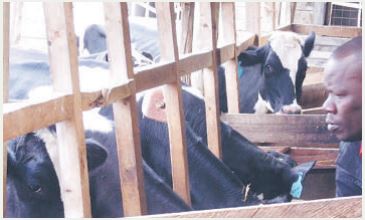×
The Standard e-Paper
Fearless, Trusted News

A few kilometres away from Narok town, along Narok-Mulot road sits Saning’o Kuraru’s farm. He practices mixed farming. He has beaten all odds, by practicing this kind of farming, in an area where most people are pastoralists.